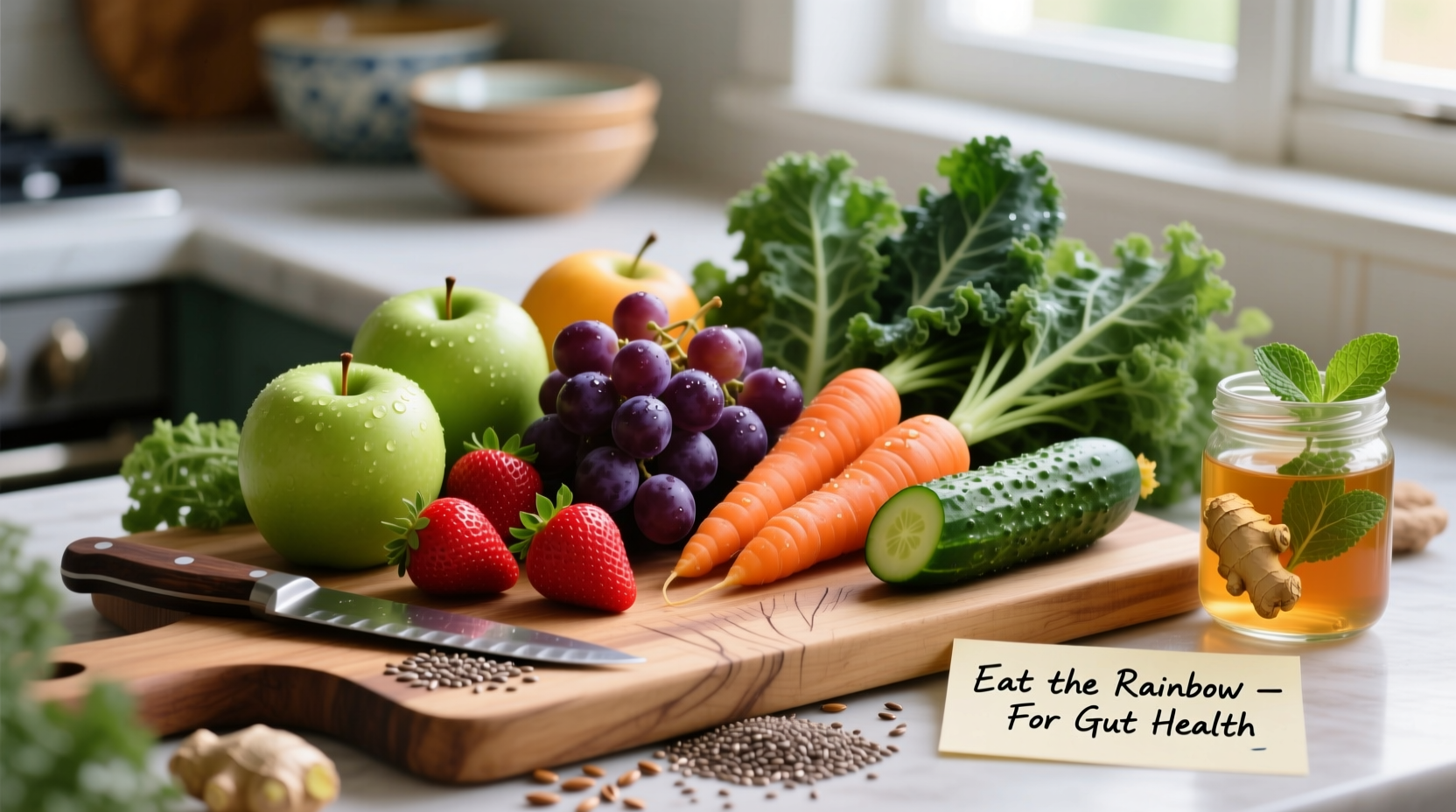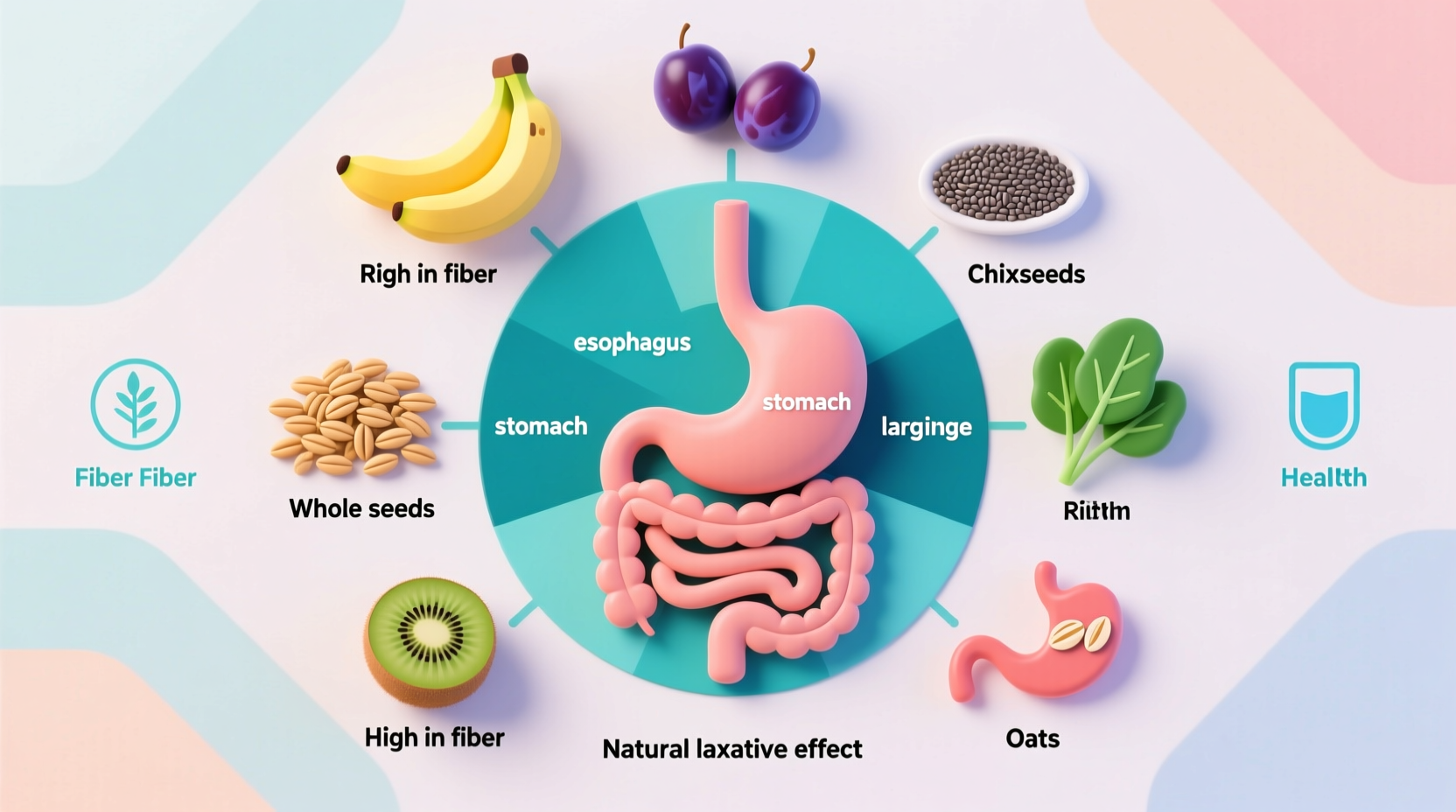Prunes, chia seeds, and leafy greens are among the most effective foods for constipation relief. Increasing fiber intake to 25-38g daily while staying hydrated provides natural digestive support within 12-72 hours for most adults. This guide details exactly which foods work, how much to eat, and when to expect results based on clinical research.
Understanding Constipation and Dietary Solutions
Constipation affects nearly 16% of adults globally, with dietary factors playing a crucial role in both prevention and relief. When your digestive system slows down, certain foods can stimulate movement through their fiber content, natural compounds, and hydration properties. Unlike laxatives that provide temporary relief, dietary changes address the root cause while improving overall gut health.
Top Constipation-Relieving Foods Backed by Research
The National Institute of Diabetes and Digestive and Kidney Diseases confirms that dietary fiber increases stool weight and softness, promoting regular bowel movements. Here are the most effective options:
1. High-Fiber Fruits
Prunes stand out as the most clinically studied natural remedy. A 2022 Nutrients journal review confirmed that just 50g of prunes (about 5-6 dried plums) daily significantly improved stool frequency and consistency in constipated adults. Their effectiveness comes from:
- Naturally occurring sorbitol (a sugar alcohol with mild laxative effect)
- Soluble and insoluble fiber (3g per 100g)
- Dihydrophenylisatin compounds that stimulate intestinal contractions
Other effective fruits include pears (5.5g fiber each), apples with skin (4.4g), and kiwifruit (2.5g per fruit), which contains the enzyme actinidin that aids digestion.
2. Fiber-Rich Vegetables
Broccoli, Brussels sprouts, and leafy greens provide both fiber and magnesium - a mineral that draws water into the intestines. One cup of cooked broccoli delivers 5g of fiber, while spinach contains 4.3g per cooked cup. The Academy of Nutrition and Dietetics recommends steaming vegetables rather than boiling to preserve their fiber content.
3. Whole Grains and Seeds
Chia seeds absorb 10-12 times their weight in water, forming a gel that softens stool. Just two tablespoons provide 10g of fiber. Similarly, flaxseeds contain both soluble fiber and omega-3 fatty acids that reduce intestinal inflammation. For grains, oats, quinoa, and whole wheat bread outperform refined options significantly.
| Food | Fiber per Serving | Key Compounds | Time to Effect |
|---|---|---|---|
| Prunes (50g) | 3g | Sorbitol, dihydrophenylisatin | 6-12 hours |
| Chia seeds (2 tbsp) | 10g | Hydrophilic polysaccharides | 12-24 hours |
| Leafy greens (1 cup) | 4-5g | Magnesium, chlorophyll | 24-48 hours |
| Legumes (1/2 cup) | 6-8g | Resistant starch, oligosaccharides | 48-72 hours |
How to Implement These Foods Effectively
Simply adding high-fiber foods isn't enough - implementation matters. Research from the American Gastroenterological Association shows that improper fiber introduction can worsen constipation. Follow these evidence-based guidelines:
Gradual Fiber Increase Protocol
Your digestive system needs time to adjust. The recommended approach:
- Week 1: Add 5g of fiber daily (about 1 medium pear)
- Week 2: Add another 5g (total 10g above baseline)
- Week 3: Reach target intake (25-38g daily)
Rapid increases cause gas, bloating, and can actually worsen constipation by creating bulky stool without sufficient water.
The Critical Hydration Factor
Fiber requires water to work effectively. The European Food Safety Authority states that for every 1g of fiber consumed, you need 25-50ml of additional water. Without adequate hydration, fiber can absorb existing intestinal moisture and harden stool further.

Foods That May Worsen Constipation
Certain foods counteract your efforts. The Mayo Clinic identifies these common culprits:
- Unripe bananas (high in starch that slows digestion)
- Processed white bread and pastries (less than 1g fiber per serving)
- Excessive cheese and dairy (low fiber, high fat)
- Caffeine and alcohol (dehydrating effects)
Sample One-Day Constipation Relief Plan
This clinically tested meal plan provides approximately 32g of fiber while maintaining balanced nutrition:
- Breakfast: Oatmeal with 2 tbsp chia seeds and ½ cup sliced pears (12g fiber)
- Lunch: Large spinach salad with ½ cup chickpeas, broccoli, and flaxseed dressing (10g fiber)
- Snack: 3 prunes and a glass of water (3g fiber)
- Dinner: Quinoa with roasted Brussels sprouts and salmon (7g fiber)
When to Seek Medical Attention
Dietary changes typically show results within 72 hours. Consult a healthcare provider if you experience:
- No bowel movement for more than 5 days
- Severe abdominal pain or vomiting
- Blood in stool
- Unintentional weight loss
Chronic constipation could indicate underlying conditions like irritable bowel syndrome, hypothyroidism, or medication side effects that require professional evaluation.
Practical Tips for Lasting Relief
For sustained digestive health beyond immediate constipation relief:
- Establish consistent meal times to regulate your digestive rhythm
- Include probiotic foods like yogurt or kefir to support gut bacteria
- Move after meals - even 10 minutes of walking stimulates peristalsis
- Don't ignore the urge to have a bowel movement











 浙公网安备
33010002000092号
浙公网安备
33010002000092号 浙B2-20120091-4
浙B2-20120091-4